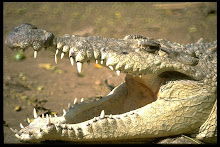Been awhile. Here's what I've been reading lately.
Powerless
by Matthew Cody
279 pages
Knopf Books for Young Readers, 2009
http://www.matthewcody.com/
Powerless is a "young adult" book that I picked up on a whim. (I'm doing a lot more impulse reading lately. Also, why is "young adult" generally defined as late teens, but when it comes to fiction "young adult" always means 10-13 year-olds?) Powerless is Cody's first book, and a pretty good one. In the story, a 12-year-old boy named Daniel moves to a new town in which some of the kids for some unknown reason have super-powers. This has been going on in this little town for generations. Another peculiarity: on their 13th birthday, these kids inevitably wake up having lost not only their powers, but all their memories of ever having had powers in the first place. Daniel (an avid reader of Sherlock Holmes stories) sets out on what ends up being a detective-type story of his own to try to save his new friends and their fantastic abilities. It's a fun shift for the normal kid to be the hope of all the supers and it's a quick, fun, imaginative tale. The story loses some of its charm and cleverness toward the ending, and part of that is because the author was clearly hoping to leave the door open for a series (and it turns out, he's working on the second book right now!!) but overall, Powerless is a good read and would probably have been one of my five favorite books when I was a young 'un.
The Baseball Codes: Beanballs, Sign Stealing, & Bench-Clearing Brawls: The unwritten rules of America's pastime
by Jason Turnbow with Michael Duca
265 pages
Pantheon, 2010
Fantastic book. A must-read for any sports fan not offended by what I will call "clubhouse vernacular." Incredibly well-researched insight into the unwritten rules that govern professional baseball: their origins, their repercussions, their evolution, and their most famous instances. The acknowledgments at the end of the book thanked every single former player, coach, play-by-play analyst, and manager the authors interviewed. The list spanned three full pages.
In addition to the impressive amount of research that went into its writing, the book is also really stinking fun. Many of the most colorful people in the history of the sport are here, and the examples pulled from baseball history range from unbelievable to hilarious. There's also a commentary on the changes Big Money has brought to the sport, and to sports in general. It's a really insightful, enjoyable read that manages to be uncannily informative at the same time.
Gretzky's Tears: Hockey, America, and the Day Everything Changed
by Stephen Brunt
255 pages
Triumph Books, 2009
As hardcore of a hockey fan as I am, I didn't expect to enjoy this book as much as I did. The story behind one of the most influential moments in modern hockey history is intricate, bewildering, and surprisingly compelling. The layers of social, emotional, and economic implications, not only for the working-class city of Edmonton but the entertainment Mecca of Los Angeles, were/are utterly fascinating. So too are the principal characters in this drama--in this corner, automotive philanthropist Peter Pocklington. In the other, media millionaire Bruce McNall. (Both would one day end up in jail) And then, of course, there's Wayne Gretzky, Mr. Nice Guys Finish First. The man somehow found himself embroiled in one bad situation after another and yet managed to keep himself clean.
This is an odd book because it's not really a hockey book, not really a biography, and not really a story of how a monumental business deal was struck behind close doors. It's all of those things, because they were all so delicately tied together at the time. Whatever else Gretzky's Tears is, it's definitely fascinating and dynamic on its own levels.
Cell
by Stephen King
451 pages
Pocket Star publishers, 2006
http://www.stephenking.com/index.html
One of King's more grisly recent novels, Cell probably shouldn't have work, but it did because King's a very good writer. The premise: one day, everyone using a cell phone goes insane and starts attacking anything in sight. There's murder, dismemberment, cannibalism, and a lot of babbling rage. It's almost like a zombie story, but after a hundred pages or so, these "phone crazies" start behaving strangely, almost like they're a part of a flock rather than a bunch of mindless roaming individuals. In true King fashion, our survivors take a journey to try to connect with missing loved ones (and hope they haven't gone phone-crazy-zombie, too), and along the way they try to piece together what exactly is going on. I found myself drawn in as the characters uncovered one bit of information at a time to try to put together all the pieces of the puzzle, but the book sorta of jumped the shark toward the end, and it felt like the idea the author had spent the first 400 pages weaving came more or less unraveled by the need for an ending. It was a fun read, though, and quick for four-plus-hundred pages. A "popcorn novel" to borrow a term from cinema, and there's nothing wrong with that.
Currently reading:
I'm about to finish From Russia With Love, the next Bond book. After that, I've got an autobiography from Phil Vischer, the creator of Veggie Tales, called Me, Myself, and Bob. I have two books on interlibrarly loan that I have a month to get through: Sometime Never by Roald Dahl (a story about nuclear war that nobody really liked when it came out) and The Eye of the World by Robert Jordan. I have a paperback by Terry Pratchett, but I don't think I'll have time to get to it.
Subscribe to:
Post Comments (Atom)

I already have five books at home and another five on order from the library. But once I start knocking out some of these entries, Baseball Codes is DEFINITELY going on the list.
ReplyDelete